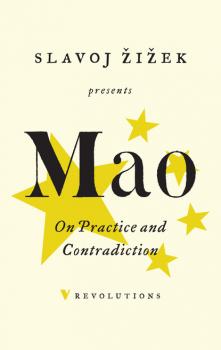ТОП просматриваемых книг сайта:
Историческая литература
Различные книги в жанре Историческая литература, доступные для чтения и скачиванияАннотация
Forget the myth of the sweet Irish Colleen. Real Irish women were no cream-puff debs. From the ancient warrior queens Marrigan, Macha, and Badbh to the labor-movement maven Mother Jones, Irish women have backbones of steel. Wild Irish Roses is a fascinating look at wild Irish women throughout history; serious information imparted in Trina Robbins' trademark style, with verve and humor.The women in Wild Irish Roses are not always nice girls or even good girls, but they are women who know how to get things done, whether on the battlefield or in the bedroom. These are women who preserved and handed down the old stories. They are women who fought in revolutions with either gun or pen, wrote books, starred in books others wrote, and stormed heaven itself.Author Trina Robbins is an impeccable researcher whose knack for telling stories and embellishing them with engaging illustrations and photos, brings each of these Wild Irish Roses to life, including:Maeve and six other warrior queensGrania and Deirdre, who ran away from kings for the love of younger menFive women who turned themselves into birds to get the job done rightSaint Brigit and the saintly Kathleen O'SheaCultural revivalist Maude Gonne and friendsIrish-American beauty roses, including Scarlett O'HaraAnd warriors in their own right, such as Mother Jones and companyWild Irish Roses is a celebration of tough, independent, beautiful Irish women from myth to modernity. It's a book that is sure to entertain, inform, and inspire readers of every background to find the Irish rose in themselves–to discover what they want and have the courage to go out and get it.
Аннотация
In Chocolate Islands: Cocoa, Slavery, and Colonial Africa, Catherine Higgs traces the early-twentieth-century journey of the Englishman Joseph Burtt to the Portuguese colony of São Tomé and Príncipe—the chocolate islands—through Angola and Mozambique, and finally to British Southern Africa. Burtt had been hired by the chocolate firm Cadbury Brothers Limited to determine if the cocoa it was buying from the islands had been harvested by slave laborers forcibly recruited from Angola, an allegation that became one of the grand scandals of the early colonial era. Burtt spent six months on São Tomé and Príncipe and a year in Angola. His five-month march across Angola in 1906 took him from innocence and credulity to outrage and activism and ultimately helped change labor recruiting practices in colonial Africa. This beautifully written and engaging travel narrative draws on collections in Portugal, the United Kingdom, and Africa to explore British and Portuguese attitudes toward work, slavery, race, and imperialism. In a story still familiar a century after Burtt’s sojourn, Chocolate Islands reveals the idealism, naivety, and racism that shaped attitudes toward Africa, even among those who sought to improve the conditions of its workers.
Аннотация
The extradition of terror suspects reveals the worst features of the security state. In 2012 five Muslim men—Babar Ahmad, Talha Ahsan, Khalid al-Fawwaz, Adel Abdul Bary, and Abu Hamza—were extradited from Britain to the US to face terrorism-related charges. Fahad Hashmi was deported a few years before. Abid Naseer and Haroon Aswat would follow shortly. They were subject to pre-trial incarceration for up to seventeen years, police brutality, secret trials, secret evidence, long-term detention in solitary confinement, citizenship deprivation and more. Deport, Deprive, Extradite draws on their stories as starting points to explore what they illuminate about the disciplinary features of state power and its securitising conditions. In looking at these stories of Muslim men accused of terrorism-related offences, Nisha Kapoor exposes how these racialised subjects are dehumanised, made non-human, both in terms of how they are represented and via the disciplinary techniques used to expel them. She explores how these cases illuminate and enable intensifying authoritarianism and the diminishment of democratic systems.
Аннотация
Tracing the complexity and contradictory nature of work throughout history. By the end of the nineteenth century, the general Western conception of work had been reduced to simply gainful employment. But this limited perspective contrasted sharply with the personal experience of most people in the world—whether in colonies, developing countries or in the industrializing world. Moreover, from a feminist perspective, reducing work and the production of value to remunerated employment has never been convincing. Andrea Komlosy argues in this important intervention that, when we examine it closely, work changes its meanings according to different historical and regional contexts. Globalizing labour history from the thirteenth to the twenty-first centuries, she sheds light on the complex coexistence of multiple forms of labour (paid/unpaid, free/unfree, with various forms of legal regulation and social protection and so on) on the local and the world levels. Combining this global approach with a gender perspective opens our eyes to the varieties of work and labour and their combination in households and commodity chains across the planet—processes that enable capital accumulation not only by extracting surplus value from wage-labour, but also through other forms of value transfer, realized by tapping into households’ subsistence production, informal occupation and makeshift employment. As the debate about work and its supposed disappearance intensifies, Komlosy’s book provides a crucial shift in the angle of vision.
Аннотация
One of the world’s leading radical philosophers analyses the failure of the Syriza experience in Greece In a series of seven trenchant interventions Alain Badiou analyses the decisive developments in Greece since 2011. Badiou considers this Mediterranean country “a sort of open-air political lesson”, with much to tell us about the wider situation. Greece is exemplary of “our fundamental contradictions in Europe, which are also ultimately the fundamental contradictions of the world such as it is—the world served up to the authoritarian anarchy of capitalism.” Notwithstanding the Greeks’ heartening opposition to the financial markets’ hegemony, Badiou considers it also important to address the reasons why this opposition failed. “Movementist” politics may arouse widespread sympathy, but for the French philosopher they have “absolutely no effect other than to temporarily trap the movement in the negative weakness of its affects.” Badiou argues that a consequential opposition inspired by the emancipatory politics of the past—or by what he calls “the communist hypothesis”—should set its compass by the “orienting maxims” proposed in this book, defining a direction for political action.
Аннотация
When cowboys were workers and battled their bosses In the pantheon of American icons, the cowboy embodies the traits of “rugged individualism,” independent, solitary, and stoical. In reality, cowboys were grossly exploited and underpaid seasonal workers, who responded to the abuses of their employers in a series of militant strikes. Their resistance arose from the rise and demise of a “beef bonanza” that attracted international capital. Business interests approached the market with the expectation that it would have the same freedom to brutally impose its will as it had exercised on native peoples and the recently emancipated African Americans. These assumptions contributed to a series of bitter and violent “range wars,” which broke out from Texas to Montana and framed the appearance of labor conflicts in the region. These social tensions stirred a series of political insurgencies that became virtually endemic to the American West of the Gilded Age. Mark A. Lause explores the relationship between these neglected labor conflicts, the “range wars,” and the third-party movements. The Great Cowboy Strike subverts American mythology to reveal the class abuses and inequalities that have blinded a nation to its true history and nature.
Аннотация
The true history of the imperial deal that transformed the Middle East and sealed the fate of Palestine On November 2, 1917, the British government, represented by Foreign Minister Arthur Balfour, declared that they were in favor of “the establishment in Palestine of a national home for the Jewish people.” This short note would be one of the most controversial documents of its time. A hundred years after its signing, Bernard Regan recasts the history of the Balfour Declaration as one of the major events in the story of the Middle East. Offering new insights into the imperial rivalries between Britain, Germany and the Ottomans, Regan exposes British policy in the region as part of a larger geopolitical game. Yet, even then, the course of events was not straightforward and Regan charts the debates within the British government and the Zionist movement itself on the future of Palestine. The book also provides a revealing account of life in Palestinian society at the time, paying particular attention to the responses of Palestinian civil society to the imperial machinations that threatened their way of life. Not just a history of states and policies, Regan manages to brilliantly present both a history of people under colonialism and an account of the colonizers themselves.
Аннотация
The writings that underpinned the Chinese revolution, introduced by Slavoj Žižek. These early philosophical writings underpinned the Chinese revolutions, and their clarion calls to insurrection remain some of the most stirring of all time. Drawing on a dizzying array of references from contemporary culture and politics, Žižek’s firecracker commentary reaches unsettling conclusions about the place of Mao’s thought in the revolutionary canon.
Аннотация
A classic history of the role of Black working-class struggles throughout the twentieth century This is the first comprehensive historical perspective on the relationship between Black workers and the changing patterns of Britain’s labour needs. It places in an historical context the development of a small black presence in sixteenth-century Britain into the disadvantaged black working class of the 1980s. The book deals with the colonial labour institutions (slavery, indentureship and trade unionism) and the ideology underlying them and also considers the previously neglected role of the nineteenthcentury Black radicals in British working-class struggles. Finally, the book examines the emergence of a Black radical ideology that has underpinned the twentieth-century struggles against unemployment, racial attacks and workplace grievances, among them employer and trade union racism.
Аннотация
The definitive analysis of Hindu nationalism in contemporary India and the challenges for the radical Left With the Hindu nationalist BJP now replacing the Congress as the only national political force, the communalization of the Indian polity has qualitatively advanced since the earlier edition of this book in 1997. This edition has been substantially reworked and updated with several new chapters added. Hindutva’s rise necessitates a more critical take on mainstream secular claims, ironically reinforced by liberal–left sections discovering special virtues in India’s ‘distinctive’ secularism. The careful evaluation of the ongoing debate on ‘Indian fascism’ has resonances for the broader debate about how best to assess the dangers of the far right’s rise in other liberal democracies. A study follows of how Hindutva forces are pursuing their project of establishing a Hindu Rashtra and how to thwart them through a wider transformative struggle targeting capitalism itself.










